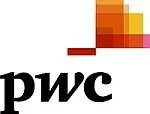Overview
It is common practice for some employers to provide accommodation to their employees under certain circumstances sometimes in lieu of housing allowance.
Under the Personal Income Tax Act (PITA) 2011 as amended, this represents a taxable benefit. However, the determination of the taxable benefit has long been a contentious issue.
Based on section 5 of PITA, where an employer provides accommodation to its employee, the employee will be treated as receiving a taxable benefits which is equal to the annual value of the premises. The section also provides that annual value of the premise would be based on local rates or as determined by the relevant tax authority.
Given that local rates are not readily available in practice, the LIRS has relied on the provision of the law to issue a guideline for determining the value of accommodation benefits as contained in the notice.
The public notice states that accommodation benefit would arise and be taxable where:
- it is available to the employee on a permanent basis (i.e. extended period) for more than 90 days; or
- where the employer pays the rent which the employee is ordinarily expected to pay.
The accommodation benefit will not be taxable where the employee has a personal/primary accommodation running at the same time and the accommodation is necessitated by business reasons.
Valuation of the benefit
- The taxable value of a leased accommodation is the rent paid.
- Where the accommodation is owned by the employer this shall be the commercial rental value of comparable properties in a similar location.
- The taxable benefit of a hotel accommodation exceeding 90 days is the amount paid by the employer for the hotel room or the room rate.
Reporting Obligation
Employers are required to disclose details of accommodation provided to their employees including name of the landlord; location of the property, value of the rent paid; and any other details as may be required from time to time.
Takeaway
This notice provides clarity on LIRS' position regarding the valuation and taxation of accommodation benefit, this is a positive development.
However, some of the criteria stated in the notice including the duration of 'permanent" accommodation, and the valuation bases in some cases are not specifically provided for in the law. Taxing the full rent as against the annual value of the premises is the last resort. Annual values can be obtained from the Ministry of Land with reference to the value typically stated in the Land Use Charge assessments.
Although not specifically stated, it can be inferred from the notice that service charges for leased accommodation and non-room related charges for hotel accommodation are not taxable.
Employers are advised to assess the likely impact of this notice on their employee accommodation policy and practice to avoid potential exposures.
The content of this article is intended to provide a general guide to the subject matter. Specialist advice should be sought about your specific circumstances.



